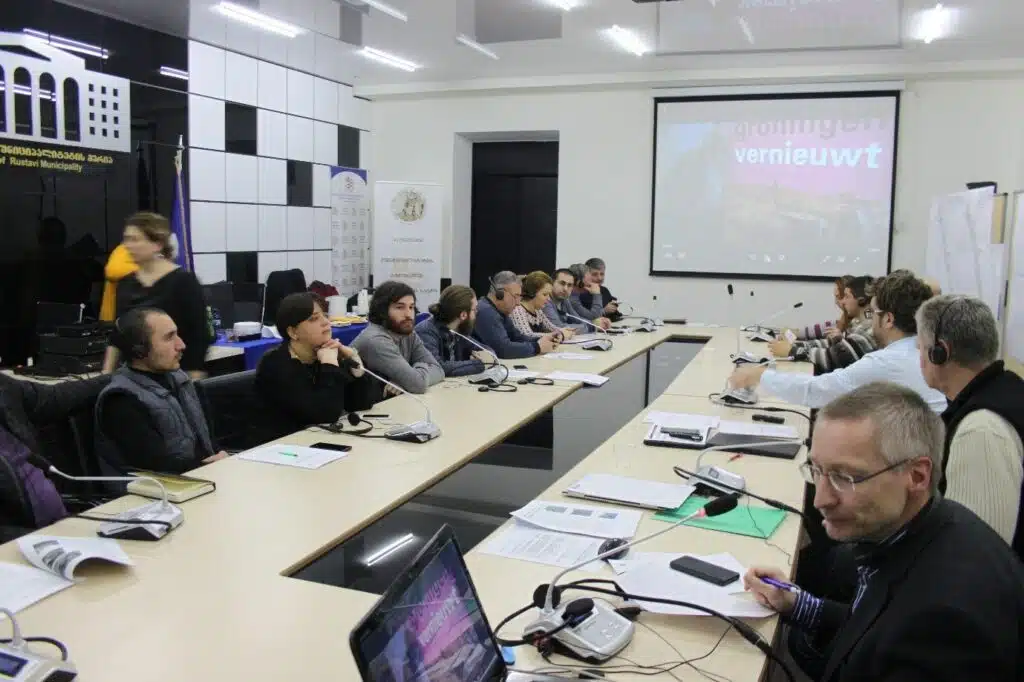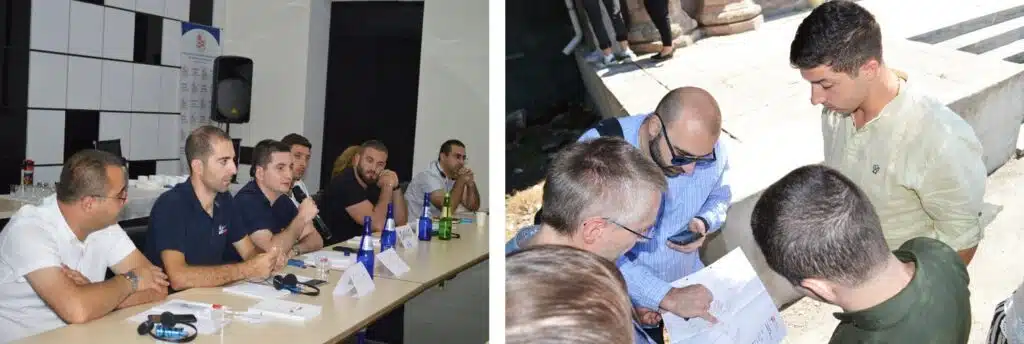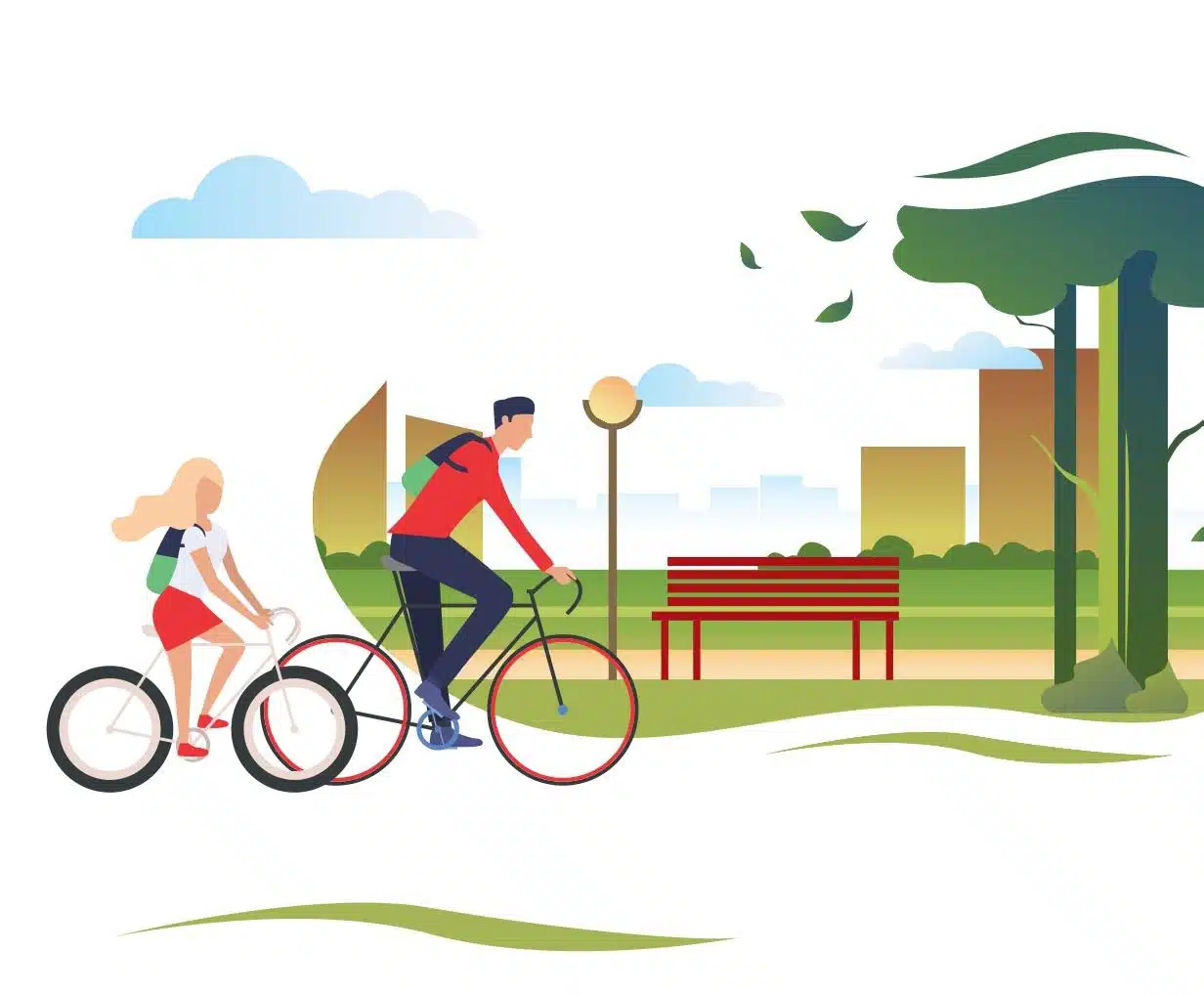By Mariam Kvaratskhelia
The implementation of sustainable urban mobility concepts is a cornerstone for ensuring continuous mobility and livability of cities. The Coronavirus crisis and subsequent transport-related policies, aside their severe consequences, also can offer opportunities to promote sustainable transport. Considering the full package of benefits may allow cities built on car-oriented planning to reconsider their choices and shift to more sustainable modes of transport. A strategy to support cycling provides just one such example.
The city of Rustavi seized the opportunity to promote cycling at the end of May 2020 when the City Council adopted a 10-year Cycling Strategy. Consequently, as a part of an overall transport system development plan, the mid-size city in Eastern Georgia with an industrial legacy strives to implement an integrated cycling network which hopefully will gain it the status of being the first bike-friendly city in Georgia.

Sustainable Mobility has many mutual benefits (TUMI infographic)
Project Background
The Rustavi Cycling Strategy was developed under the support of the project “Vertically Integrated Climate Policies (VICLIM)”, funded through the International Climate Initiative of the German Federal Ministry for the Environment, Nature Conservation and Nuclear Safety (BMU) and implemented by the Ministry of Environmental Protection and Agriculture of Georgia (MEPA) and the Deutsche Gesellschaft für international Zusammenarbeit (GIZ) GmbH.
The project’s overall goal was to support the achievement of Georgia’s nationally determined contribution (NDC) under the Paris Agreement by improving the cooperation between national and sub-national levels as well as supporting mitigation-related policy design and implementation for GHG reduction.
Development of the Cycling Strategy
To develop the cycling strategy, three project missions took place in Rustavi and one training workshop was organized in Georgia’s capital Tbilisi. In January 2019, the first introductory mission was organized to assess existing cycling infrastructure and identify potential fields of cooperation with the support of the Transformative Urban Mobility Initiative (TUMI). During the meetings with Irakli Tabaghua, Rustavi City Mayor, and Nino Tandilashvili, Deputy Minister of Environmental Protection and Agriculture of Georgia, all stakeholders emphasized their strong willingness of to reduce air pollution as well as to make the road infrastructure adaptable to cycling. As a result, an agreement on working jointly for the development of the cycling strategy was reached.
For elaborating a comprehensive and relevant cycling strategy, which includes the best practices, the consideration of the national context plays a very important, even crucial role. Thus, the process was accompanied by mutual work between German and Georgian experts, representatives of Rustavi City Hall, and City Council as well as local cycling activists.
During the regional workshop for cycling development in Tbilisi in April 2020 (organized by VICLIM and TUMI), several key success factors for cycling, including infrastructure, legal framework conditions, and marketing were discussed with experts from Germany and Ukraine. Furthermore, a field trip was organized to see pilot projects in Tbilisi and existing cycling infrastructure in Rustavi.

Presentation of the strategy in Rustavi, Georgia in November 2019
The second mission that was held in Summer 2019, served to broaden the understanding of the city’s spatial arrangement, design, and planning. International and national experts inspected and assessed existing cycling infrastructure, traffic volume, and flow capacity. After productive meetings with cycling activists and city administration representatives, experts gained first insights of existing problems, preferences, and vision. Many recommendations and arguments from all stakeholders were taken into account.
Based on the results of the second mission, a comprehensive strategy with technical drawings of several types of cross-sections as well as detailed sketches of the initial cycling infrastructure project for 250m of the street were developed. The draft strategy was presented during the third and final mission in late November 2019. After the feedback from the working group, it was updated, finalized, and handed over to City Hall. The rest is history when the City Council adopted the 10-year Cycling Strategy in May 2020.

Second mission to Rustavi, Summer 2019: Meeting with city representatives and cycling activists
Overall, the document integrates technical as well as social aspects of the cycling development as well as the city’s vision and strategic pathways towards:
- – connected and safe cycling network across the city;
- – safe and relatively low-cost cycling infrastructure that does not take away space from the pedestrians;
- – services that are essential for a cycle-friendly urban transport system;
- – marketing activities in order to promote cycling among the whole population and as a key mode of urban transport; and
- – awareness-raising campaigns and educational programs for establishment of road safety and appropriate bicycle traffic skills.

First Proposal of the street network into main (red) and traffic calming (green) streets
By initiation and adopting the cycling strategy, Rustavi City not only proved its long-term vision towards transitioning to an appropriate sustainable transport system, but it made a precedent for other Georgian cities to reconsider their urban mobility preferences and actions. Hopefully, the #summerofcycling will roll out to many more places this year and beyond!
